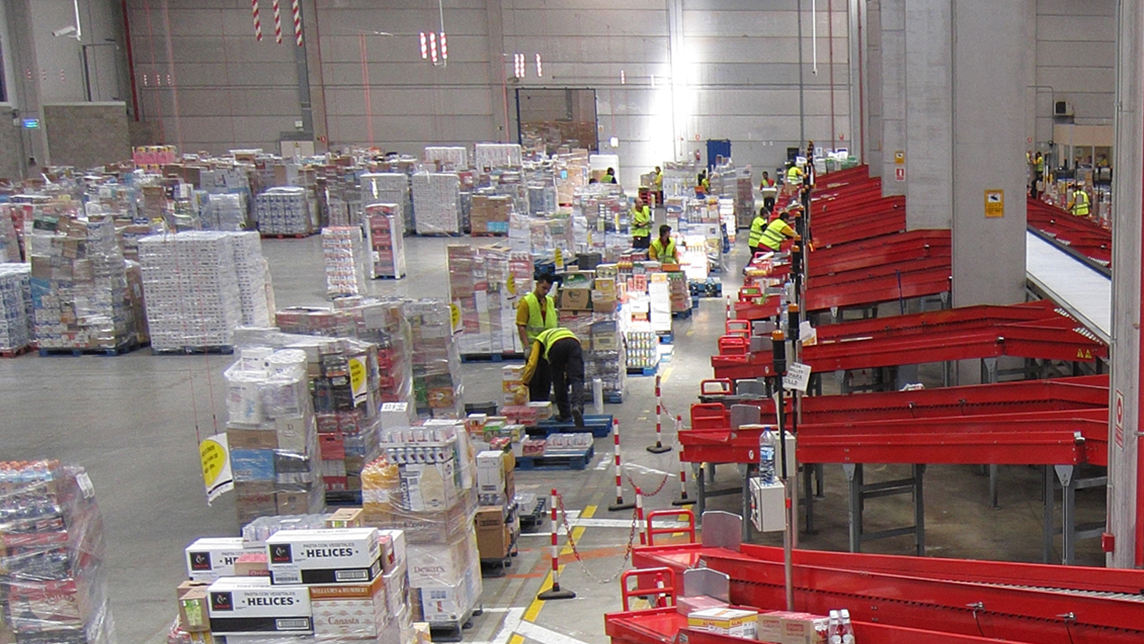In 2012, over 200,000 express deliveries were carried out every day in the Huaqiangbei District in Shenzhen, the largest electronics hub in Asia. In 2013, the listed Shenzhen Huaqiang Industry Co., Ltd. launched “Huaqiangbao,” an online logistics services platform, which allowed thousands of small business owners to check logistics information online and provided them with collection on delivery services. In 2015, Li Yonghu, the driving force behind “Huaqiangbao,” left to set up his own logistics online platform, Kuaidiniao.
Equal opportunity provider
Logistics management is one of the major challenges facing domestic e-commerce enterprises that wish to build better relationships with customers. In order to optimize user experience and improve brand value, giant e-retailers such as JD, Alibaba and Suning built their own logistics systems. Most small- and medium-sized e-commerce firms and individual sellers, lacking the capital to build logistics systems, used third-party logistics providers.
But working with third-party providers entails a number of communication problems, which could result in poor user experience. Firms and individual sellers might try to integrate the interfaces of all the logistics providers with which they worked themselves, but undertaking such a task is time-consuming and expensive. Instead, when customers inquired about the whereabouts of their parcels, customer service staff had to log onto multiple logistics platforms to obtain tracking information.
Created to resolve this and other problems, Kuaidiniao opened API interfaces both to logistics services seekers and to logistics services providers, building a bridge between them. Sellers can choose the best logistics solutions by entering details such as the weight of the goods and the delivery destination, which helps them match up with the best of 418 possible providers for their needs.
After choosing a provider, all sellers have to do is connect directly to Kuaidiniao in order to verify tracking information, delivery status, etc. Logistics providers can in turn reach over 300,000 online retailers and 20,000 enterprises through the platform.
In addition to streamlining the logistics process for smaller firms, Kuaidiniao now also offers financing services. Logistics financing is a multi-trillion-RMB market in China. Kuaidiniao provides its users with three financing options.
First, the company pays sellers directly after the delivery is completed and charges 0.2-3% of the payment for the transaction. Second, Kuaidiniao pays sellers after the goods have been collected by express companies and charges RMB 2 for every RMB 3,000. Third, express companies collect payment from sellers using the platform. Such services can reduce capital turnover time from between five and seven days to just four hours, which helps address cash flow problems many sellers have.
A booming market
Kuaidiniao aims to take advantage of a vast and fast-growing market. China’s express deliveries have increased from less than 5.7 billion in 2012 to 31.3 billion in 2016, a rate of increase of over 50% a year for five consecutive years. According to the January 2018 Deloitte & Touche Report on the Development of China’s Smart Logistics, the smart logistics market in China could exceed RMB 1 trillion by 2025.
Such a huge market attracts powerful companies that want to get in on the action. E-commerce giant JD established the JD “warehouse & delivery” system, which now consists of 263 large warehouses, a fleet of over 5,600 vehicles and about 7,000 self pick-up sites across China., Cainiao, a subsidiary of Alibaba, launched its own logistics data service platform, which had already processed 16 trillion pieces of data by the end of 2017. But these platforms only provide services to businesses that work directly with them and cooperate exclusively with logistics providers that share their interests.
With such aggressive competition, Kuaidiniao knows its place. Li Yonghu said in an interview that, as an independent third-party platform, Kuaidiniao would always be open to all users and never get involved directly with logistics or the e-commerce business. This stance appeals to many logistics partners, including SF Express, China’s largest privately owned logistics services provider, which had a dispute with Alibaba over data sharing.
Kuaidiniao’s goal is to build the largest independent third-party logistics platform in China. In the past three years, over 145 million logistics orders have been made on Kuaidiniao, and the platform currently processes 580 million pieces of data a day. In the future, these data will become priceless assets of Kuaidiniao, which may, as its name implies (“Kuaidiniao” means “express delivery bird” in English), fly high in the sky of China’s logistics industry.














